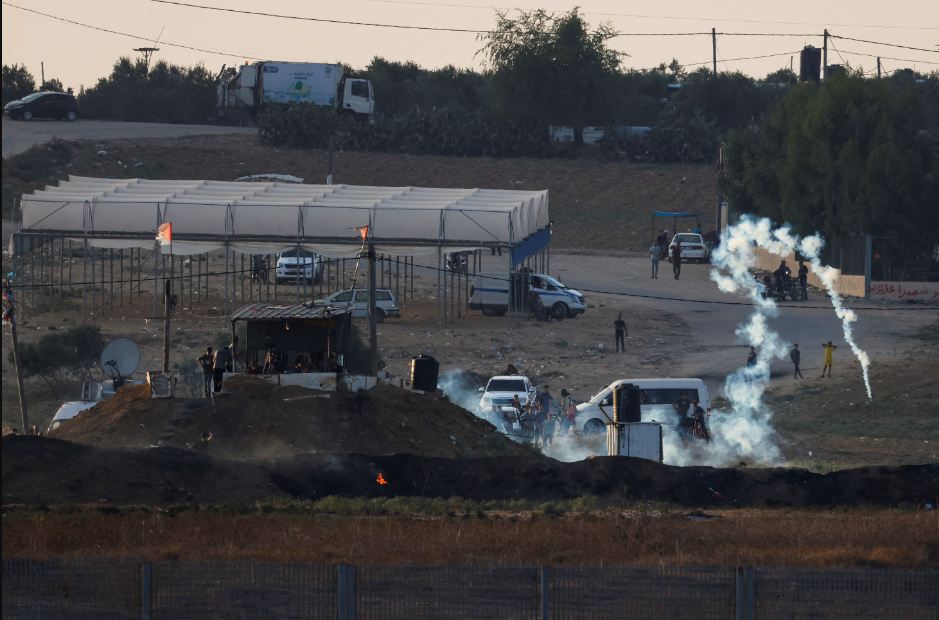Khalistan Exposé: Inside the Web of Fake Jobs, LMIA Fraud, and Trucking Scams
The Khalistani networks described here prey on the aspirations of young migrants, manipulate vulnerable individuals, and place both them and the public in danger.
The Khalistani ecosystem in North America as having evolved far beyond the familiar terrain of protests, slogans, or political posturing. It presents this network as a full-fledged system built upon immigration fraud, fabricated employment offers, manipulated legal pathways, drug-based revenue structures, and trucking-related crimes that allegedly sustain a radical empire operating across the United States and Canada.

Sikh youth from Punjab are drawn into this web through promises of legitimate employment abroad, only to find themselves trapped in cycles of exploitation, indebtedness, and radical influence once they arrive.
According to the sources, one of the central pillars supporting this system is Canada’s Labour Market Impact Assessment scheme. Once intended as a regulatory tool to ensure that foreign workers filled only genuine labour shortages, the Labour Market Impact Assessment (LMIA) process is portrayed as a lucrative avenue for manipulation.
Individuals seeking to migrate or secure work in North America are said to be approached by Khalistani-linked immigration consultancies operating in both Punjab and Canada. These consultancies reportedly promote LMIA-based jobs in sectors such as trucking, farming, and hospitality.
Many of these operations allegedly function through gurdwaras or small agencies that appear legitimate at first glance but are described as quietly feeding manpower into a network that depends on vulnerable migrants.

When these migrants reach North American soil, the promises made to them begin to unravel. Instead of stable employment and lawful processes, they are allegedly subjected to pressure to attend separatist gatherings or carry out specific tasks framed as obligations.
These favours are said to include activities such as transporting drugs, participating in document fraud, or performing logistical work that supports the broader system. Such actions are portrayed as a form of repayment demanded by the network that facilitated their entry.
In 2024, Winnipeg immigration consultant Balkaran Singh pleaded guilty to creating fake LMIA documents for Sikh immigrants. This case is presented as an illustration of the ease with which LMIA papers can be fabricated and sold.
Additionally, in Surrey, the firm associated with MP Sukh Dhaliwal appeared in LMIA records, and several Sikh business owners operating in the trucking and farming sectors have faced investigations connected to visa fraud and labour violations. These details are offered to show how deeply such practices have permeated multiple industries.

Once migrants are inside North America, they are often steered directly into the trucking industry. This sector is described as having been quietly monopolized by Khalistani elements who use it as a tool for expanding their influence. The networks allegedly involved in this ecosystem are said to arrange forged driver’s licenses, circumvent safety protocols, and place untrained drivers behind the wheels of large commercial trucks.
Several U.S. states are reported to have seen an increase in fatal trucking accidents involving recently immigrated Punjabi drivers, which can be attributed to the broader fraudulent chain that placed these individuals in positions for which they were not trained.
It then highlights two cases involving fatal crashes.
The first involves Harjinder Singh, who had reportedly been living in the United States illegally since 2018. He drove his tractor-trailer into a Florida highway median designated for “official use only.” A black minivan collided with his truck at high speed, killing two individuals immediately and a third later in a hospital.
Instead of condemnation, SFJ’s Gurpatwant Singh Pannun reportedly organized a Sikh prayer outside the facility where Harjinder Singh was held, referring to him as a victim. This as an example of how such individuals are shielded by radical groups.
The second case concerns Jashanpreet Singh, a twenty-one-year-old illegal immigrant who allegedly entered the United States via what is described as the “Khalistan asylum route.” He was involved in a California freeway crash that killed three people and injured several others.
He had obtained a driver’s license through forged documentation and asylum manipulation networks. These incidents are described not as isolated tragedies but as outcomes produced by an entrenched system that has infiltrated logistics and labour sectors in both countries.
Behind these cases, there exists a darker supply chain. Khalistani operatives are said to facilitate illegal border crossings, arrange fraudulent LMIAs or asylum claims, push migrants into trucking jobs, and then rely on those same migrants to transport drugs or contraband.
The profits from these activities are described as being funnelled back to sustain radical outfits, enabling the spread of extremist propaganda and expanding the influence of separatist organizations. This cycle, as presented, is framed as an interconnected chain where each step supports the next.
Even Western governments have begun acknowledging these developments. Canada’s 2025 Terror Financing Report is cited as indicating that two Khalistani extremist groups receive financial backing from within Canada. Studies are also described as having linked Sikh-owned trucking companies to rings involved in drug smuggling and money laundering.
These findings highlight how the so-called freedom movement has come to depend on the proceeds of illegal activity, manipulated visa systems, and the lives affected by reckless and untrained drivers on highways.
The Khalistani networks described here prey on the aspirations of young migrants, manipulate vulnerable individuals, and place both them and the public in danger. The tragedy as multilayered, involving dreams compromised by radical agendas, highways turned into routes of death due to unqualified drivers, and community trust used as leverage for political purposes.
Each fake visa, forged license, or asylum scam is portrayed as bringing society closer to another preventable loss of life. The final message is that authorities in both the United States and Canada must take decisive steps to dismantle LMIA fraud structures and strengthen regulations in the trucking industry before further lives are claimed by a nexus of greed, illegality, and radicalism.
Disclaimer: Views expressed by writers in this section are their own and do not reflect Milli Chronicle’s point-of-view.



